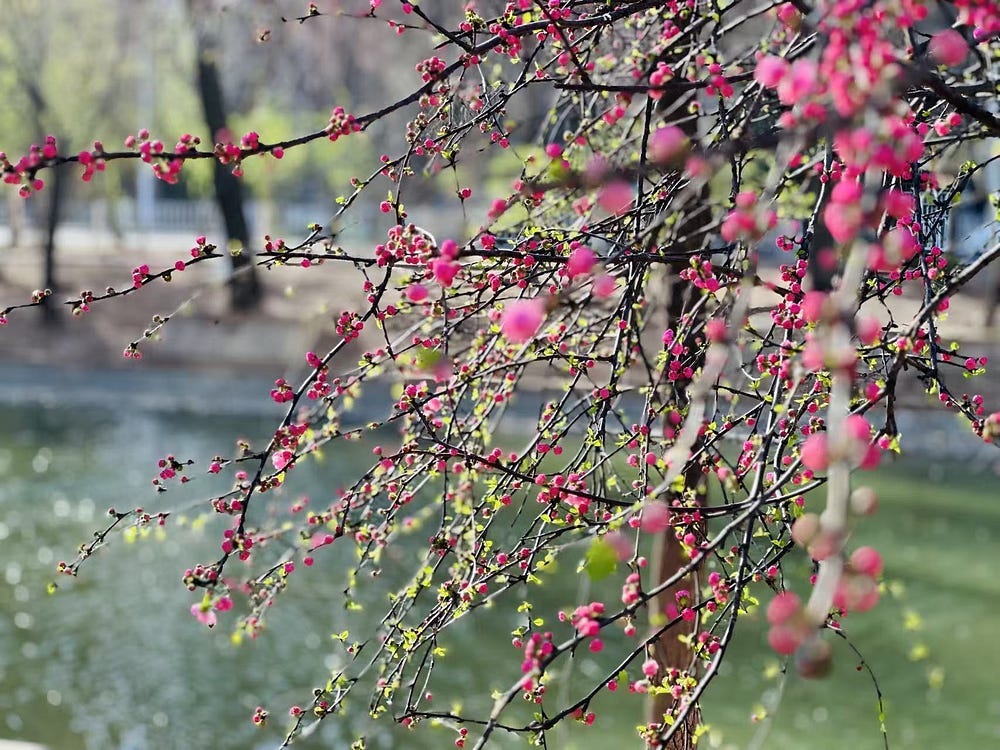The Daodejing seemingly comes to us through the ages as a whole of parts, like puzzle pieces, or a deck of cards, shuffled and redealt a thousand-thousand times. A deck of cards, each speaking independently but together more, describing a game the reader is invited to play. Editors, compilers, and translators all put their minds to the task. Some put greater stock in numerology and cosmology. Some brought their politics and morality, embellishing here, cutting away there. Some cared for the simplicity of titles, while others merely shrugged and settled on numbering the passages. This is what we have, passed down for us to ponder and hang great meanings on.
“Act without acting, do things without doing them, and taste without tasting. See big in what is small, and see more in what is less. Return virtue for hatred. Start off with something easy in order to do what is difficult. Work on something small in order to achieve what is big. All difficult things should be dealt with when they are easy. All great causes will be accomplished when small details are attended to. The sage attains greatness because he never seeks to be great. Easy promises lead to lack of trust. Taking too many shortcuts puts one in difficult situations. Therefore the sage approaches things as if they were hard, so in the end there would be nothing too hard to deal with.”
How can we act without acting? A nonsensical contradiction that conceals many ways the world goes awry. Our actions are meaningless in the grand scheme of the universe, so why bother. Is that it? Or so meaningless that we all have a license to kiss or kill? Perhaps the tide of events is so overpowering that we can best lean in and let the world carry us along. I think not. There is too much that we do to smooth our way, playing the odds of Nature’s casino. Perhaps a shift of perspective would help.
There is difference between what we do and the importance we invest in our actions. I look back on the many forks in my path and consider the reasons, consider what they meant to me. I worked to make some proud, to inspire the envy of others, sometimes doing things just to prove I could do what others could not. All this to gift myself an empty sense of community, a false safety, because I thought community and safety were necessary. I was investing myself in my actions, as if that was my purpose.
I am brought back to a story related by LinYutang in his biography of SuDongpo, his haunting and inspiring final words, “It is a mistake to try (to get to Heaven).” He undertook all his life to express his nature, even when doing so brought hurt to himself. He knew what he risked, and he did it anyway. He didn’t care for the world’s opinion, though the world battered him. The great and powerful could never really touch his spirit. His poetry is a running third person commentary asking, “Why am I this way?” He followed his nature willingly, but free of desire for an ultimate reward; not to achieve some goal, just to do what his heart said was right. Not even Heaven could judge him.
Seeking greatness as if greatness could be discovered like a treasure at the end of a quest is as silly as it sounds. Greatness isn’t something we find. It is given and shared. Why would anyone want to be great? This is how to be our greatest version of ourselves.
[Author’s Note: For those interested, the translation used for this series is Dao De Jing, translated by Ju Yan’an. It was my first and has become my favourite translation. Find it here.]
[Author’s Note: Thank you for taking the time to visit. All pictures were taken by the author or family member, unless otherwise noted.]






What stayed with me most was your reflection on Su Dongpo—not caring for the world’s opinion, even when it cost him. That’s been on my mind more as I get older: how much energy goes into contorting ourselves for approval we don’t even believe in. There’s a quiet kind of strength in letting that go. Thanks for the reminder.
The "aspire to be be great by being the greatest version of ourselves "reminds me of a comment Timothee Chalamet recently made. At some awards show or another, he said simply that he aspired to be great. Then all the world criticized him for being arrogant. Arrogant? He wasn't saying he was great, he was simply saying he aspired to be. Isn't it good to have goals, to be the best version of ourselves? He put so much effort over a lengthy period of time to capture the essence of Bob Dylan, and after seeing the movie, all I have to say is that i think Timothee is already great. He's already achieved his goal.